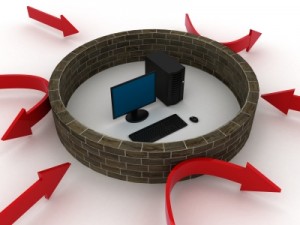I’m sure we all have heard the story of how Odysseus and the
Greek’s took over the city of Troy in the Trojan War. By building a giant wooden horse and hiding
some men in there, with a little deceit, the Greeks were able to infiltrate the
city and brought about devastation while the Trojans were celebrating what they
thought to be a victory.
Similar to
Greek mythology, today's online version of Trojan horses are forms of malicious software that can hide their
true identities in what appears to be an innocent program. Once installed, the Trojan can access files
on your computer and transmit any important information over the internet. It separates itself from viruses and worms because
it does not replicate itself and infect other files.
There are four types of Trojan horses; remote access Trojans,
backdoor Trojans, IRC Trojans and key logging Trojans. Remote access Trojans allows the malware to
gain administrative control over your computer, giving its own permission to do
almost anything whether it is accessing personal information, formatting the
drives associated with your computer, deleting or altering existing files, or
even activating your webcam or microphone and recording. Backdoor Trojans work in conjunction with
remote access Trojans in the way that they open a gateway for someone to gain
access to your computer. The IRC Trojan uses
an Internet Relay Chat server to send a command to multiple computers and uses
them as a network. These differ from the
previous two because the person behind the malware does not issue commands
directly through the “back door” but rather through an IRC server. Last, but
not least, key loggings Trojans simply record everything you type. It can be as simple as that, or as complex as
to noticing when you open your browser and go to a desired website with log in
information and just recording that.
Although there are different types of Trojans, most hacks
use multiple types to get what they want.
This often leads to what is referred to as a zombie computer, or bot
computers. Computers attacked by this
malware may seem seamlessly normal, but in reality, it is being used as a host
to generate spam emails, impose more Trojan horses, and go after websites with
a Distributed Denial of Service. A DDos attack engulfs a website or system with
information, ultimately leading up to a crash.
It is these kinds of computers, which usually work in a network instead
of individually, that make the internet the hazardous place it is today.
With all that being said, there are a number of ways that
you can avoid being infected by Trojan horses.
For example, don’t open emails or download attachments from people or
organizations you do not know, avoid download an subsequently installing those
programs from publishers you do not trust, and use a firewall software and an antivirus
program to help prevent malicious data from gaining access and even removing
any kind of malware that may be on your computer already. Trojans are easier to avoid than other types
of malware because it is at the discretion of the user, that is that the user
must initiate some kind of action to acquire the Trojan.




No comments:
Post a Comment